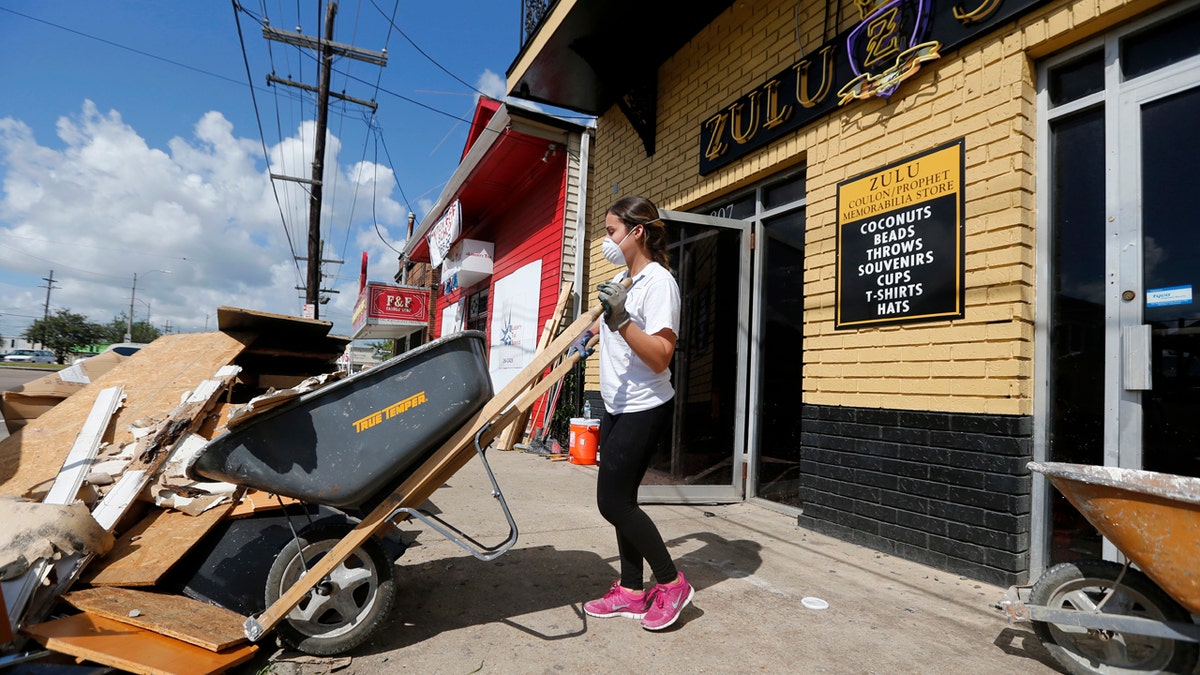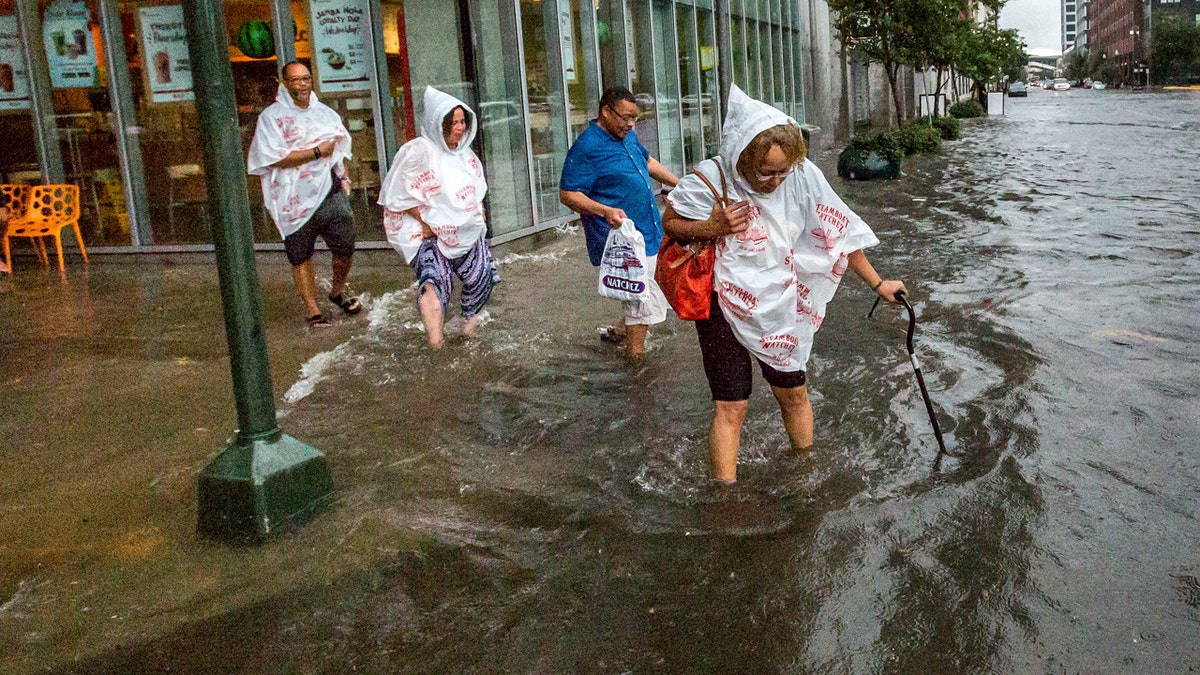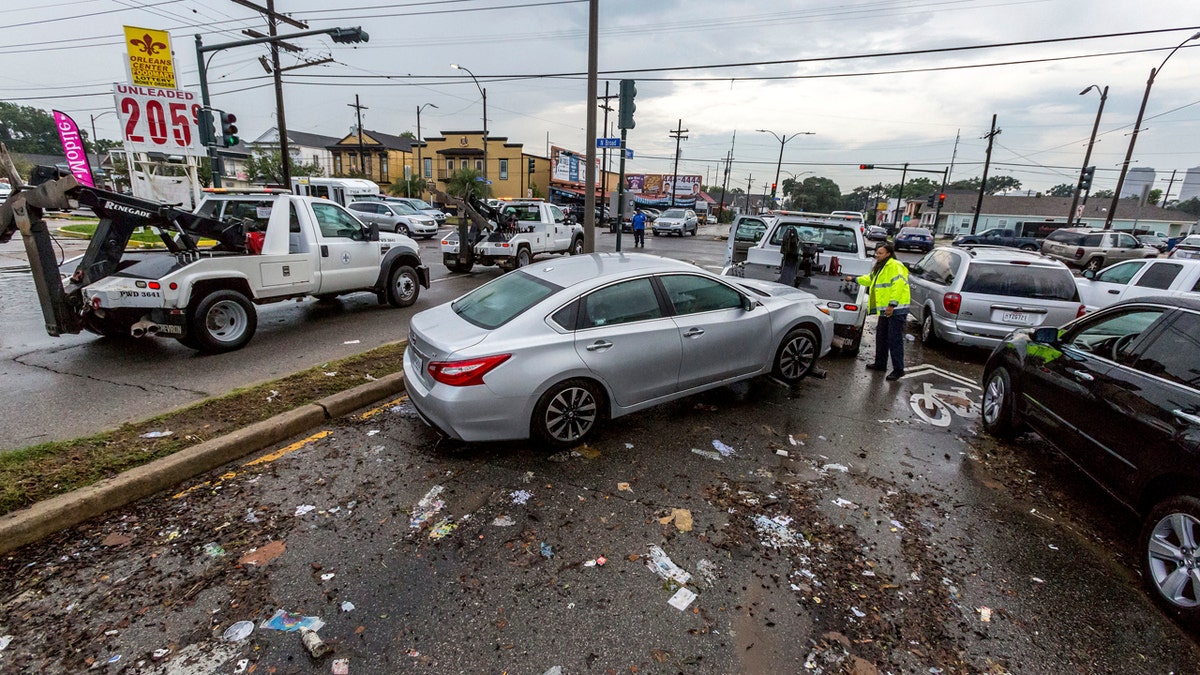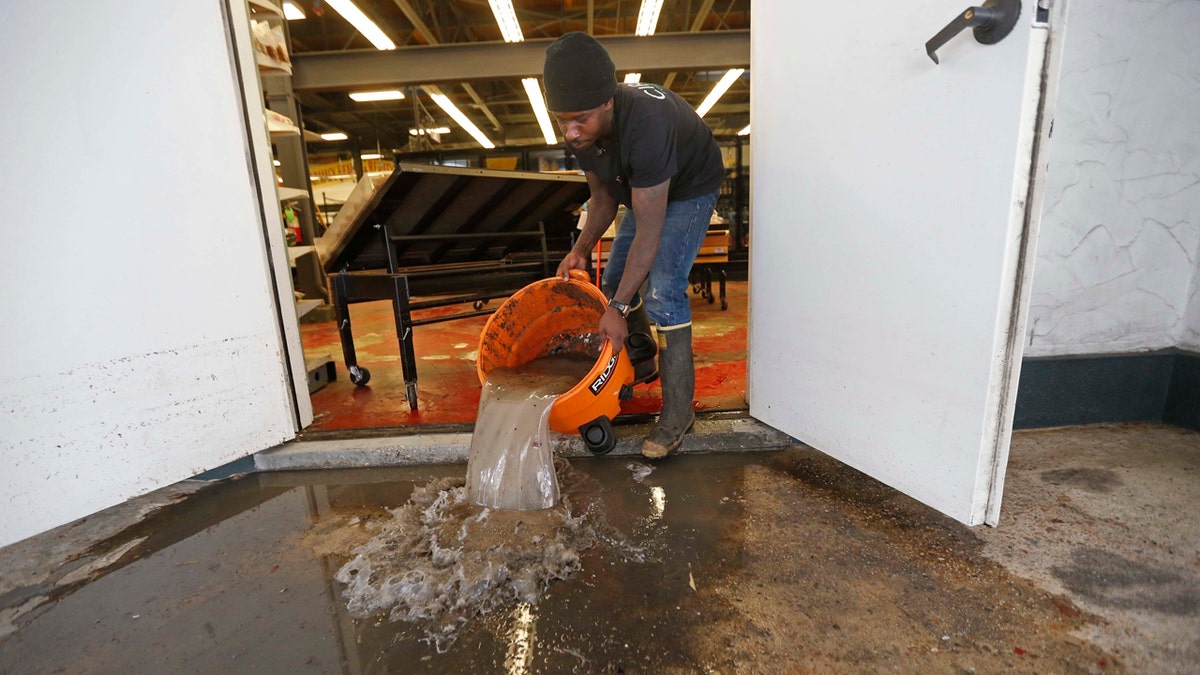
Pre-med student Sheila Tendero, from the Miami Medical Team, helps gut the Zulu Social Aid & Pleasure Club Store in New Orleans, which flooded during storms. (AP)
Officials in New Orleans urged residents Thursday to move their vehicles to higher ground in certain neighborhoods, amid continued problems with the city's water pumps that has forced two officials out -- as more rain is due.
Mayor Mitch Landrieu's office said in a news release the city has lost service to one of its turbines, which powers most of the pumping stations that service the East Bank of New Orleans.
As a result of the power outage, the system’s capacity to drain storm water from the streets is diminished. Currently, five of the sewerage and water board's six turbines are out of service, according to FOX 8. All but two were out of service before the fire and resulting otage.

Philana Crite, of Cleveland who was in town for a family reunion, steps of the curb into flood waters in the New Orleans. (AP)
The lone turbine, along with power from Entergy, can still power 38 of the city’s 58 available pumps located west of the Industrial Canal, city officials said at a press conference.
"We are at risk if we have a massive rain event that comes up at the last minute and creates the kind of flooding we had," Landrieu told reporters, referring to flooding the city experienced during the weekend. "The power we have available to us now will not be enough to pump the city out in the time needed."
The mayor said the city will be vulnerable for the next 24 to 48 hours, FOX8 reported.
“This could be as early as later [Thursday], or it could be longer. We just do not know yet,” Landrieu said.

Flooded cars are cleared from Orleans Avenue at Broad Street in Mid City. (AP)
The Orleans Parish School Board closed schools and its central administrative offices Thursday because of diminished pumping capacity, according to FOX 8.
Louisiana Gov. John Bel Edwards said at a news conference he signed a declaration of emergency "out of an abundance of caution."
"This is a serious situation," he said, but stressed now is not the time to panic.
The city's municipal pumping system is supposed to move water out of the low-lying city, and is separate from the $14.5 billion spent in the wake of Hurricane Katrina, as reported in the New York Times, to construct levees, flood walls, gates and pumps to block storm surge from tropical systems.
The Gulf Coast is in the middle of hurricane season, and thunderstorms are also prevalent in New Orleans during August.

A man pours out water after a weekend of flooding. (AP)
Crews were on site Thursday working to repair the downed turbine and secure backup power to restore power to the pumping stations, FOX8 reported.
“We are going to do everything in our power to secure this additional equipment and to get the plant back in order," Landrieu said.
Due to the potentially severe weather that could result from high water, residents were being told to call 911 to report street flooding and life-threatening emergencies. Residents were also being advised to remain indoors during heavy rainfall.
"The chief has been instructed to make sure that the police department is ready and prepared in the case that we need them. Chief McConnell has been instructed to have the fire department ready," Landrieu said.
Earlier this week, city officials said the water-pumping system was fully operational, and all 24 pumping stations were working at full capacity.
Related coverage...
But after the system failed to keep up with a storm during the weekend that dropped 9.4 inches of rain in three hours, the truth about the state of the water pumps began to emerge.
Despite what the public had been led to believe, city council members were then told that pumping stations in two of the hardest-hit areas went down to half- to two-thirds capacity on Saturday, according to FOX8.
"It is unacceptable that the public was not only uninformed, but misinformed as to our drainage system functionality during the flood," Council Member LaToya Cantrell said in a statement Wednesday.
The disclosure has had a ripple effect on the water authority, NOLA.com reported.
Cedric Grant, one of Mayor Mitch Landrieu's top deputies and the head of the Sewerage & Water Board, told the city council at the start of its meeting Tuesday he would retire at the end of hurricane season, which lasts through November.
Public Works Director Mark Jernigan submitted his resignation shortly after the meeting, when he was asked whether his agency had done enough to clean the catch basins that feed the drainage system.
Landrieu said he also wanted the board to fire Joseph Becker, the Sewerage & Water Board's general superintendent.
The Associated Press contributed to this report.





















